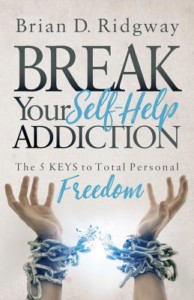Your Wacky Family: A Character Study this Christmas
Your Wacky Family: A Character Study this Christmas
Crazy Uncle Billy, Wild Aunt Wanda, Weird Cousin Fester and his yellow snake… Every family has at least one unique relative running around. Ya know, the person your family dodges, and then shares stories about after they’ve left the room. Public Service Announcement: if you don’t know who the crazy one is, sorry… It’s you.
When you’re thrown into close quarters with wacky relatives this season, you have two choices:
- Avoid them at all costs.
- Take notes!
We’re not just writers when the laptop opens – our wheels keep turning long after deadlines are met. Here’s a little inspiration to help you treasure your family’s oddball unicorns and why they’ll make your writing (and life) a lot more interesting.
Forget Netflix
Turn off the TV and raise your mental antenna because you’re not going to find these people on Netflix. Unless your family member is toxic, a little crazy can be next-level entertaining. Something magical happens when we stop expecting people to play by the rules: we step into their world. Instead of yapping about bitcoin with your pretentious brother-in-law, ask Aunt Wanda about that Sasquatch tattoo peeking out from her neckline.
Our life experience is really dependent on our attitude. By choosing to see these family members as the unique treasures they are, you’re creating a positive environment for everyone in the family. You might inspire others to show a little more interest in the black sheep, initiating a more joyful holiday experience.
Story Time
Once upon a time, there was a crazy uncle who gave his niece a best-selling idea for her next novel. Will you be there to receive it? The choice is yours. Eccentric people often love to talk. Ask them one question and get ready for a whole conspiracy theory or ghost-hunting tale. Instead of running away, take notes! These relatives think outside the box – right where you want to be. Go with them on their story’s journey – there might be some inspiration hidden between Elvis sightings and tinfoil hats.
Outrageous stories are a dream because the hard work has been done for us. We can always tone something down or cut details that don’t make sense. You might feel stuck with a project until your relative says one thing that infuses new life into it.
Character Traits Galore
Writers can never have enough characters in their arsenal and family members are a gift from Santa himself – even the “normal” ones. Study people’s quirks: their dog-like sneeze, why they steal Sweet’N Low from the family dinner table, what’s so terrifying about pecans? Don’t judge them (you have your own traits), develop an honest fascination. It’s better than that PSYC class you had in college.
Write down anything unusual, then reverse your mindset and discover predictable traits your audience can relate to. Record these interesting idiosyncrasies in a document and watch the word count grow. When we’re in a quiet room with our computer, the little things are hard to remember. You’ll thank yourself later for putting together a “quirk” file.
Common Ground
What’s the cardinal rule about creating characters? Never judge them. Your killer craves revenge, your prostitute has no other options. We don’t invent two-dimensional characters so why would we treat others like they’re two-dimensional?
If you can get past someone’s ‘crazy,’ there’s always something to relate to. While too much of any emotion can make someone go off the deep end, most feelings are universal. Become curious and learn what makes them tick. Understanding leads to compassion – a happy place for artists. And you never know, this eccentric character might end up being the one person who “gets you” or who at least won’t think you’re crazy.
Strange people are usually strange because they’ve stopped hiding it. We all have a little crazy in us, and it can be a breath of fresh air when people skip the “how’s the weather” small talk and go right into their goldfish trauma. Honesty is rare, so appreciate the abandoned filter. There’s courage in being your true self and you might find yourself inspired to take a page out of their book.
David L. Hancock, Founder
Morgan James Publishing






